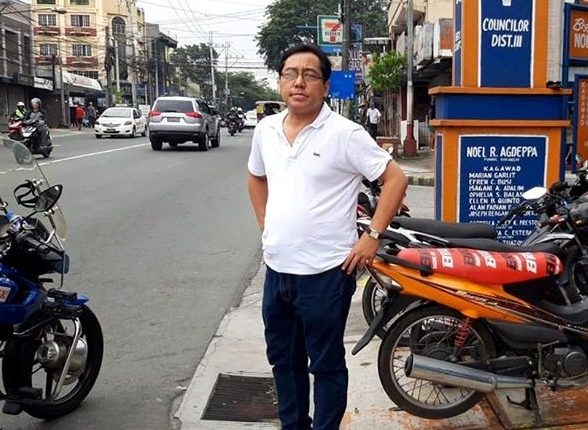LCSP seeks COA audit of ‘NCAP’
SC gives reprieves to millions; stops controversial program
WITH millions of motorists finally getting a reprieve from the claws of the ‘No Contact Apprehension Program’ (NCAP) for traffic violations thru the intervention of the Supreme Court, it is now time for the Commission on Audit (COA) to also enter the picture by opening the books of Metro Manila local government units (LGUs) involved in the NCAP.
This was the suggestion of Atty. Ariel Inton, founder and president of the ‘Lawyers for Commuter Safety and Protection (LCSP), a group that has been in the forefront in the campaign for the scrapping of the NCAP on the ground that it is not only oppressive in the amounts of penalties imposed on violators but also on legal and constitutional grounds for violation of due process.
Guesting at the ‘Meet the Press on Air’ radio program of the National Press Club (NPC) on September 4, 2022, Inton suggested for the COA, now under former Solicitor General Jose Calida, to use as its initial basis for the audit, City Ordinance 3052 that was passed by the Quezon City Council last October 1, 2021, to implement the NCAP in the city that fully took effect last July 1, 2022.
Inton said Ordinance 3052 may be a good start for the COA’s audit, claiming it would be “the same” or “nearly the same” with the ordinances passed by 5 other Metro Manila cities—Parañaque, Manila, Valenzuela, San Juan and Muntinlupa—considering all of them contracted only one ‘joint venture partner,’ ‘QPax Traffic Systems.’
Parañaque was the first city to implement the NCAP followed by Manila in 2020 (Ordinance 8676) at the height of the COVID-19 pandemic, followed by Valenzuela and Quezon City.
San Juan and Muntinlupa was supposed to fully implement the NCAP in August but was stopped by the temporary restraining order (TRO) issued by the Supreme Court last August 30, 2022.
Also covered by the TRO is the Metro Manila Development Authority (MMDA) which has its own NCAP and the Land Transportation Office (LTO) which has the role of identifying purported NCAP violators.
The NCAP became a huge burden to vehicle owners as the LTO has refused to register vehicles for non-payment of NCAP penalties despite a traffic violation being personal in nature to the vehicle driver and not to its owner.
Inton called on the COA to make an audit of NCAP after being informed that Manila officials are “open” to such an audit.
Guesting at the NPC’s ‘Report to the Nation’ forum last September 2, 2022, Atty. Princess Abante, spokesperson of Mayor Ma. Shielah ‘Honey’ Lacuna and councilor ‘Tol’ Zarcal, said they are open for the COA to scrutinize the books and account of the NCAP even as they also defended the “benefits” the program brought in terms of alleged improved traffic discipline in the city.
Specifically, Inton said the COA should be able to explain why all the LGUs agreed for the creation of a special, ‘NCAP Trust Fund’ “separate and distinct” from all the other accounts of the city government.
The ordinance stated that the city government and its “joint venture” partner (QPax) would have sole access to the account “for the implementation of the NCAP.”
Himself a former Quezon City councilor and board member of the Land Transportation Regulatory Board (LTFRB), Inton noted the creation of a special fund for NCAP earnings must be properly explained. He noted that fines for traffic violations are usually remitted to the city’s General Fund account.
“I am not saying they (LGUs) are wrong, but COA can explain this,” he said.
Inton also questioned the provision in the ordinance empowering the mayor to create an NCAP Trust Fund Review and Approval Committee that would administer the NCAP account but whose composition are yet to be made public.
He also questioned the “purpose” for the creation of a trust fund for NCAP as the ordinance did not state why it was created to begin with.
Inton also asked the COA to find out exactly how much is the “monthly honoraria” being given to the members of the trust fund committee as also provided for in the ordinance.
Aside from the willingness of Manila officials for the COA to make an audit of the NCAP, Inton noted further that Section 5 of the ordinance also mentioned that the creation of the NCAP Trust Fund and its disbursement are “subject to applicable rules and regulations of the Commission on Audit and other applicable laws.”



